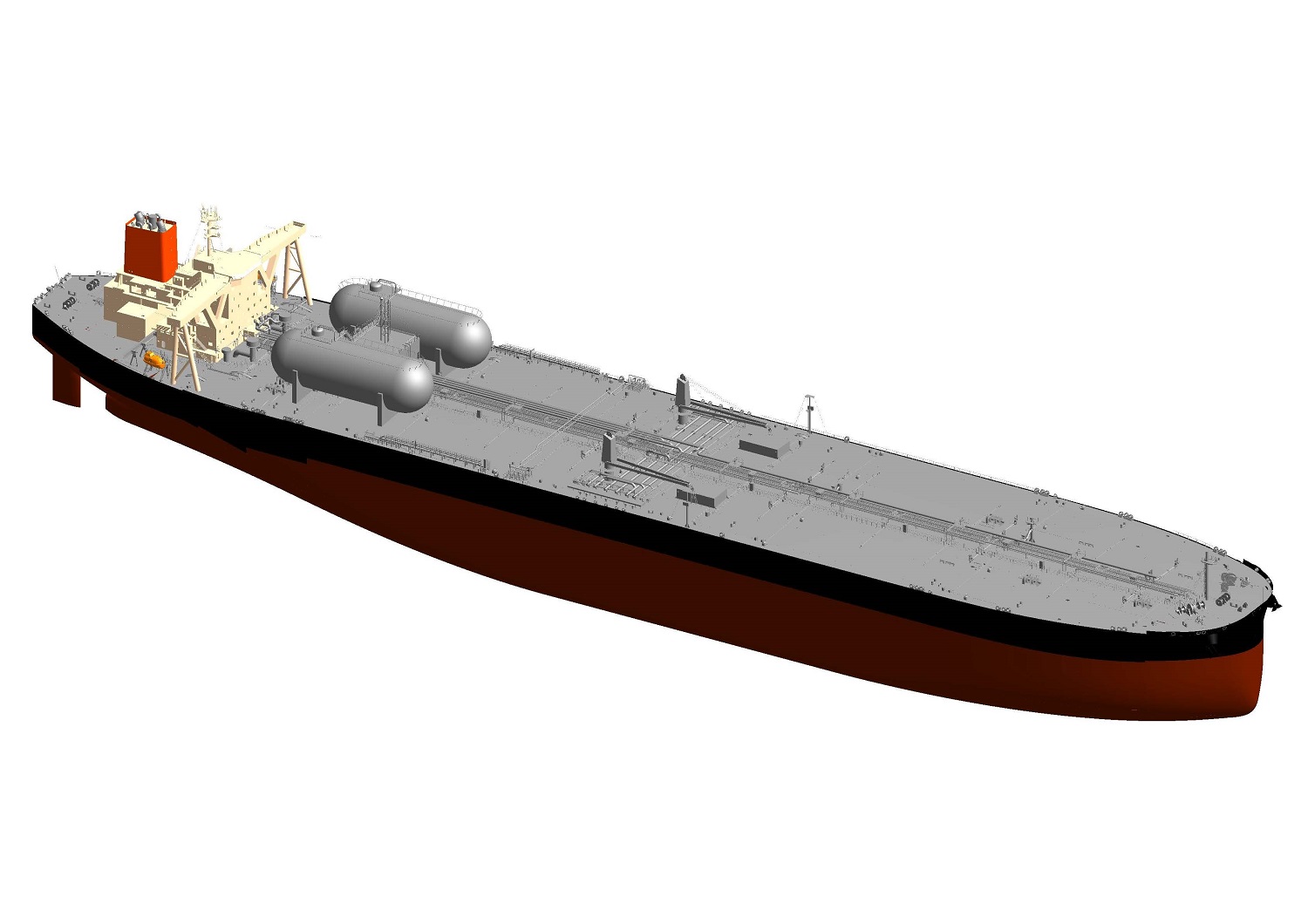Kawasaki Receives Order for Two 309,000 DWT Class, LNG-fueled VLCCs
Aug. 25, 2022

Tokyo, August 25, 2022 — Kawasaki Heavy Industries, Ltd. announced today that it has concluded a shipbuilding contract with Mitsui O.S.K. Lines, Ltd. for two 309,000 deadweight-ton class, liquefied natural gas (LNG) fueled very large crude oil carriers (VLCCs).
The newly ordered VLCCs will be built by Dalian COSCO KHI Ship Engineering Co., Ltd. (DACKS; headquarters: Dalian, China), which is jointly operated by Kawasaki and China COSCO Shipping Corporation Limited, and will be the first LNG-fueled VLCC to be built by the Kawasaki Group. The new VLCCs are scheduled for delivery starting in the second half of 2025.
These vessels will feature dual-fuel main engines capable of utilizing both LNG and low-sulfur fuel oil. During LNG-based operations, carbon dioxide (CO2) emissions are expected to be reduced by roughly 25 to 30 percent, sulfur oxide (SOx) emissions by 100 percent, and nitrogen oxide (NOx) emissions by roughly 85 percent compared with conventional engines using heavy fuel oil. The vessels comply with EEDI* Phase 3 CO2 emission regulations, which will apply to VLCCs contracted to be built in fiscal year 2025 or later.
In consideration of increasingly strict global environmental regulations as well as specific action plans, most notably the Sustainable Development Goals, Kawasaki will continue to develop and provide environmentally friendly marine technologies for use in commercial vessels designed to meet various environmental regulations, vessels that transport liquefied hydrogen (a next-generation fuel that is gaining attention), and other such vessels. Through these efforts, the company hopes to contribute to the realization of low-carbon and carbon-free societies.
| Specifications | |
|---|---|
| Length overall | Approx. 339.5 m |
| Breadth | 60.00 m |
| Depth | 28.90 m |
| Deadweight | Approx. 309,000 t |
| * | Energy Efficiency Design Index (EEDI) regulation: An international regulation that enforces compliance of newly-constructed vessels with energy-saving performance regulation values using the Energy Efficiency Design Index (EEDI), which is defined as the number of grams of CO2 emitted when transporting one ton of cargo over one mile. Required EEDI regulation values are made stricter in phases according to the construction contract and delivery dates. |
Contact
If you need more information about our business,
please feel free to contact us.





